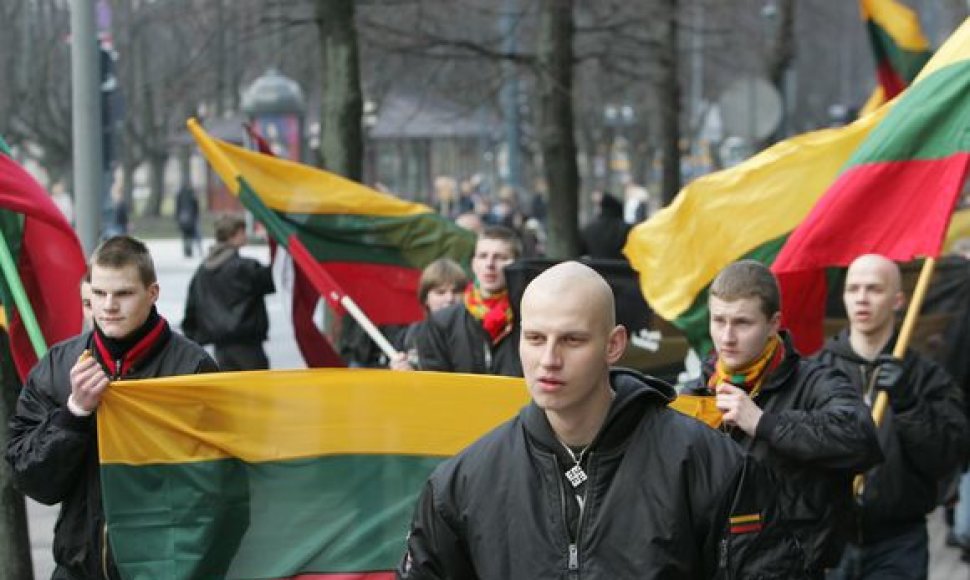Julius Panka, chairman of the Lithuanian National Youth Union, said that although the law gives the prerogative to festive events held by the state, the municipality should spare at least one hour for the march.
He said that "the march will definitely take place, with the authorities' permission or without it." "We wouldn't want such a festive day to be overshadowed by provocations or riots, therefore, we'll do everything for it to be legal," Panka said.
In his words, the march participants want to march through Gediminas Avenue because the Act of the Re-Establishment of the State of Lithuania, or Act of March 11, was adopted at the Seimas which is situated at one end of Gediminas Avenue. Besides, its "the main street of the entire country" and the traditional venue for marches and demonstrations.
Panka rejected criticism that the event would be "a neo-Nazi march."
"I would like that people who claim so look up the word "neo-Nazi," "fascist," etc in history textbooks and dictionaries. Lithuanian patriots who march on March 11 every year are representatives of various age groups from mothers with babies to pensioners. Signatories of the Act of March 11, Seimas members, enthusiasts of sports clubs, representatives of various public youth organizations march with us. And only weak-headed people can put the neo-Nazi tag on such a diverse march," Panka said.
Around 900 people took part in the march on March 11 when the country marks the Day of the Re-Establishment of the State of Lithuania (a.k.a., Independence Day). Holding tricolors, the crowd marched through Gediminas Avenue, chanting "Lithuania" and singing patriotic songs. But some human rights defenders criticized chants "Lithuania for Lithuanians" heard during the march and the participation of skinheads.
The march of 2008 sparked major controversy over participants' anti-Semitic chants.
Lithuania marks the Day of the Re-Establishment of the State of Lithuania on March 11 when the Act of the Re-Establishment of the State of Lithuania was signed in 1990 and Lithuania reestablished independence following the 50-year-long Soviet rule.












